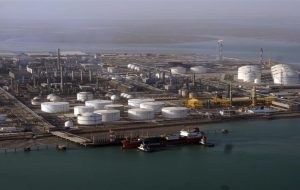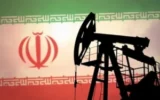
Injecting 117 million cubic meters of gas into power plants to stabilize the electricity grid
The CEO of the National Iranian Gas Company, referring to the coordinated and favorable performance in the gas production chain to refining, announced the injection of 117 million cubic meters of natural gas into the country's power plants.

Oil Minister: Sustainable liquid fuel provided for power plants
The Minister of Petroleum stated that in order to supply gas to power plants, we have delivered a cumulative 3.5 billion cubic meters of gas to power plants since the beginning of this year, and added: "Also, liquid fuel has been supplied to power plants in appropriate and stable volumes so that our dear compatriots do not face any problems or shortages in terms of electricity supply and their electricity needs are fully provided."

Bandar Imam becomes the giant of Iran’s petrochemical paper projects
Bandar Imam Petrochemical, the beating heart of the downstream chain of Iran's petrochemical industry, is currently facing a $1.4 billion project; a project that, in relation to the company's 8 trillion tomans profit, has raised serious questions about the economic logic, financing method, and the silence of Persian Gulf Holding.
Breaking News

Joint project between the University of Petroleum Industry and Arvandan; Oil production tripled in a laboratory pilot

Iran’s new oil production record thanks to the efforts of oil industry experts

“Arvand”, a major player in the PVC industry, entered the stock market

Oil Technology Park with three strategic missions, on the path of digital transformation and consumption management

Formation of a special working group to accelerate the collection of flare gases

Synergy between university, research institute, and technology park; the driving force behind innovation in the oil industry

Iran’s refineries are far from Nelson’s global standard; the future of the refining industry is uncertain

Iran’s new oil production record in July: 3.27 million barrels per day, approved by the Energy Agency

Developing energy infrastructure with private sector participation; Iran on the path to attracting capital and regional competition





